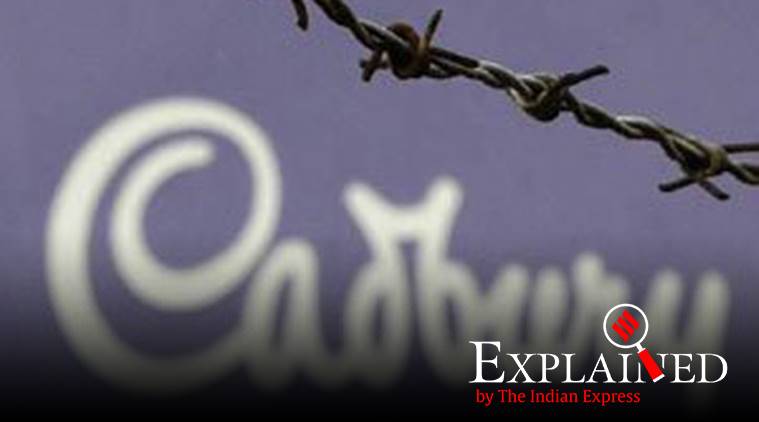Cadbury tax settlement: What amnesty did the chocolate maker get, why it isn’t out of the woods yet
The firm, which was accused of evading taxes of about Rs 580 crore, paid Rs 439 crore on January 21, 2020 under the scheme.
 The company had made an application under the amnesty scheme in December 2019. (File photo)
The company had made an application under the amnesty scheme in December 2019. (File photo)
Confectionery giant Mondelez India Foods Pvt Ltd, earlier Cadbury India, has settled one of its most controversial tax disputes pertaining to its alleged plant in Baddi, Himachal Pradesh, with the government under the Sabka Vishwas (Legacy Dispute Resolution) Scheme, 2019.
The firm, which was accused of evading taxes of about Rs 580 crore, paid Rs 439 crore on January 21, 2020 under the scheme. The company had made an application under the amnesty scheme in December 2019.
Why is the settlement of the Cadbury tax case significant?
The settlement of the case pertaining to Mondelez India (earlier Cadbury India) assumes significance as the tax dispute between the firm and the Indian government dates to 2011, and has been a contentious one.
The government had accused the company of evading excise duty by misusing “area-based exemption” for its new production unit in Baddi, Himachal Pradesh, even before it came into existence. The company, on the other hand, maintained that its decision to claim an excise tax benefit for their plant in Baddi was valid.
The revenue department of the government issued a tax demand of Rs 580 crore to the firm in 2014-15, but the tax due including penalties and interest, and has swelled to over Rs 820 crore.
The Mondelez tax settlement of Rs 439 crore is likely be one of the biggest settlements under the amnesty-cum-dispute resolution scheme, Sabka Vishwas (Legacy Dispute Resolution) Scheme, 2019, that was opened for four months beginning September 2019, to resolve indirect tax disputes predating the Goods and Services Tax regime.
So does this mean that the company is completely off the hook now?
Not quite.
While the company cannot be prosecuted for the alleged excise duty evasion at the Baddi unit after settling under the Sabka Vishwas scheme, Mondelez India has come under the scanner of the Central Vigilance Commission (CVC) and the CBI for allegedly bribing state and central government officials for getting licences and government approvals for the same Baddi plant in 2010.
The case came to light after Mondelez International Inc. in 2017 agreed to pay $13 million to settle US Securities and Exchange Commission (SEC) charges that its Cadbury unit violated the provisions of The Foreign Corrupt Practices Act (FCPA) of the US through efforts to expand the chocolate plant in Baddi.
The SEC said that Cadbury India paid a local businessman $90,666 in 2010 to work with government officials in Himachal Pradesh and obtain licenses and approvals for the expansion of the Baddi unit. An internal probe by Mondelez too has established “improper payments” to government officials.
The same year, the CVC referred the tax evasion case to the CBI, as an internal probe too found that certain state and central government officials were bribed by the company to facilitate the tax evasion.
The CBI has registered a FIR against Mondelez under The Prevention of Corruption Act, but it is unclear if the agency has filed a charge sheet in the case. The CBI case against Mondelez cannot be closed as it does not fall under the exemption provisions listed in the amnesty scheme, said experts.
What exactly is the Sabka Vishwas scheme? How does it work?
Finance Minister Nirmala Sitharaman in the Budget for FY20 announced the legacy dispute resolution scheme to “allow quick closure” of litigation pertaining to pre-GST regime. Under this scheme, relief is to the tune of 70 per cent of the duty involved, if it is Rs 50 lakh or less, and that of 50 per cent if it is more than Rs 50 lakh.
This is for cases pending in adjudication or appeal, or in investigation and audit. In cases of outstanding arrears of revenue, the relief is 60 per cent of the duty amount if it is Rs 50 lakh or less and 40 per cent, if it is more than Rs 50 lakh.
The scheme also provides immunity from penalty, interest or any other proceedings under The Central Excise Act, 1944. or Chapter V of The Finance Act, 1944 to persons and entities who pay the declared tax dues.
What is the philosophy behind Sabka Vishwas?
Like the previous direct tax amnesty schemes, Sabka Vishwas scheme sought to resolve legacy tax disputes and also boost indirect tax collections which have been slowing down due to the current economic condition.
Almost 73 per cent of the total eligible taxpayers have committed to pay tax dues of Rs 30,627 crore under the scheme. However, the amount declared under the scheme stands at just 8.5 per cent of the total amount locked in litigation at Rs 3.6 lakh crore for 1.83 lakh cases of central excise and service tax at various quasi-judicial, appellate and judicial forums put together.
As a result, the scheme which was supposed to end on December 31 was extended till January 15. Experts said that big taxpayers have chosen to take legal remedy despite the amnesty scheme.
- 01
- 02
- 03
- 04
- 05






































